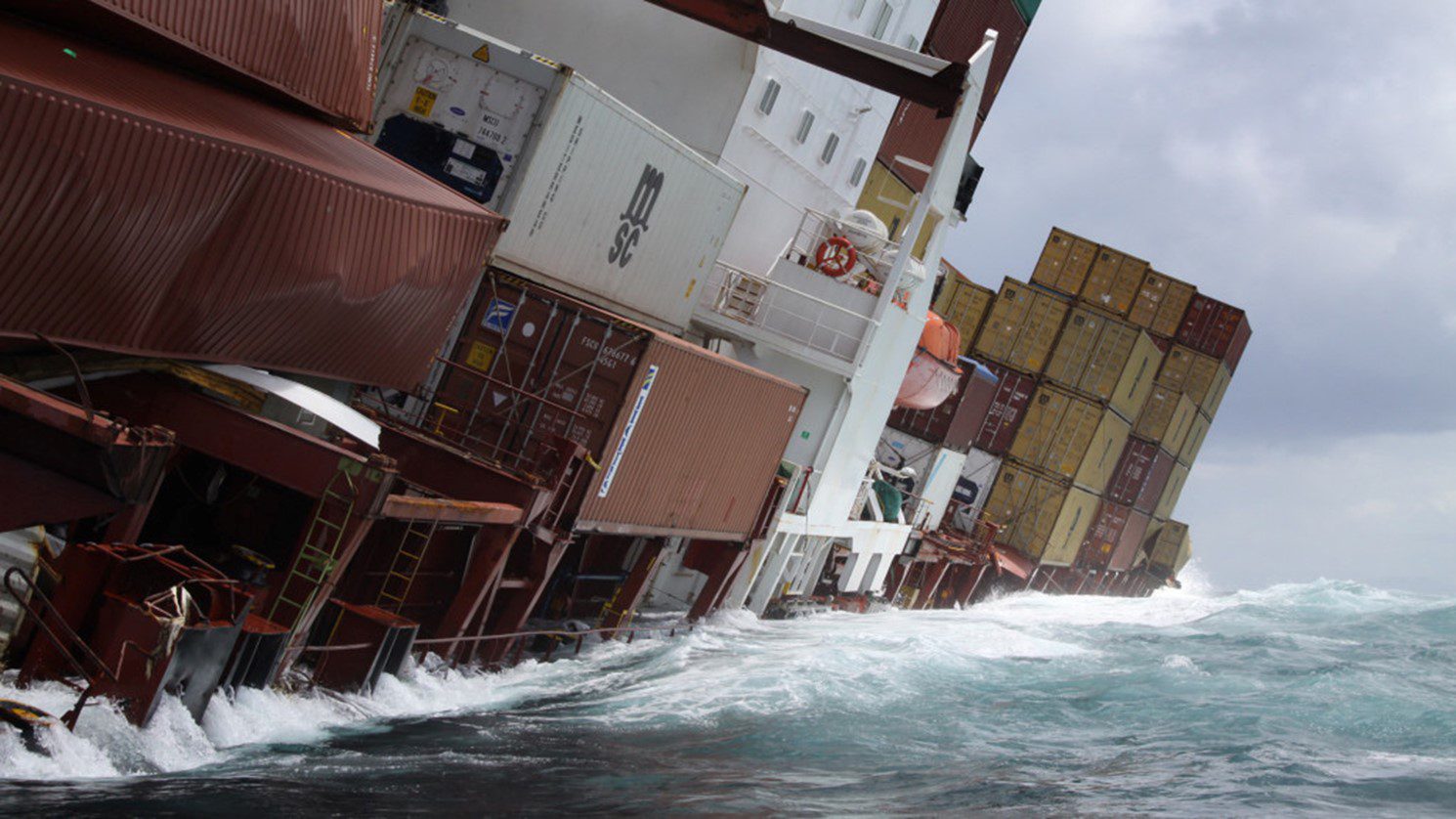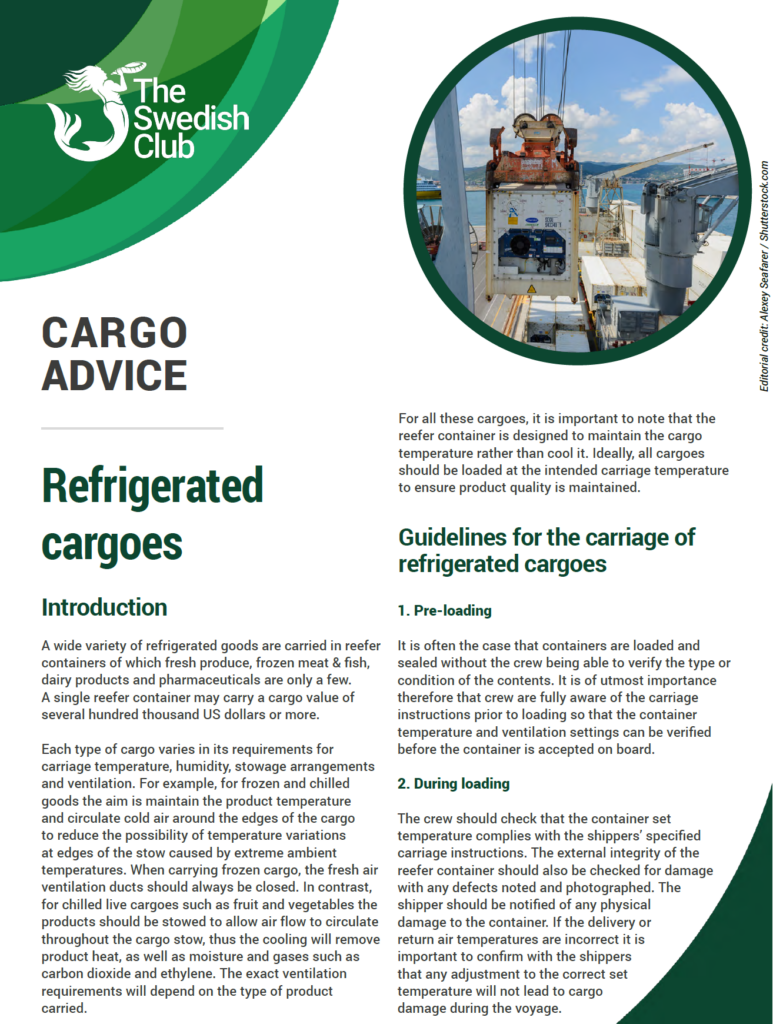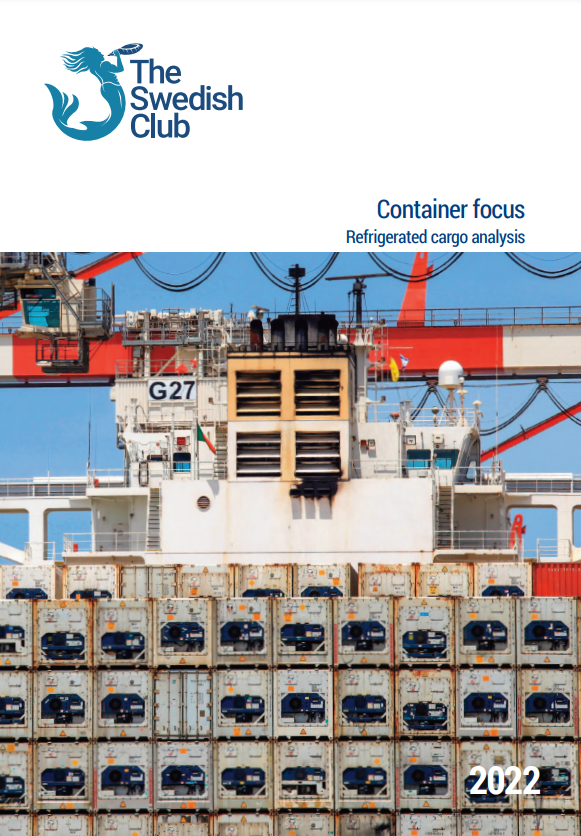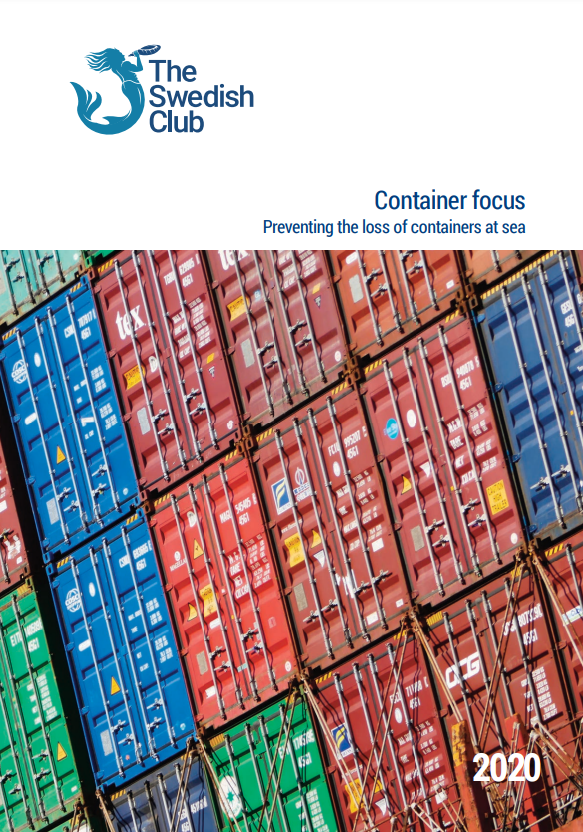
Container Vessels
Cargo claims are the most common and costly category of P&I claims. Our statistics show that 15% of all insured container vessels suffer a cargo claim a year.
Three types of damage stand for the majority of cargo claims suffered by container vessels: wet damage, physical damage and temperature damage. Accidental flooding of the cargo hold is not only the most commonly known cause, but these claims are also often the most expensive as such incidents damage numerous containers at the same time. Physical damage to cargo inside the container is often caused by insufficient lashing/securing by stevedores coupled with heavy weather during the voyage. In extraordinary cases, the containers may even be lost overboard.
Damage to refrigerated cargo
Damage to reefer container cargo is both frequent and costly when it happens. Not only is reefer cargo by definition heavily dependent on ideal conditions being maintained throughout the voyage, but the cargo is also intended for human consumption and, therefore, subject to strict regulations from the market and from government health authorities. Even minor changes in the quality may cause authorities to order the complete destruction of the cargo.
Evidence of importance from the time of loading is any carrying instructions received from shippers and/or charterers. Members should request such instructions to be in writing. The instructions should be followed unless they appear inadequate, based on the experience and expertise available.
If the temperature of refrigerated cargo received for shipment is different from that in the carrying instructions or from what experience indicates it should be, the bill of lading should be claused accordingly. Otherwise the carrier may be responsible for damage inherent in the cargo or caused during a time when the cargo was not in the possession.
There is important evidence to be collected and maintained regarding the carrying conditions during the voyage. The reefer log is a fundamental piece of evidence and should be stored safely. Vessels carrying refrigerated containers should have sufficient expertise, tools, spare parts and a supply of appropriate cooling medium to effect basic emergency repairs of the malfunctioning container on board.
Cargo Advice
Refrigerated Cargoes

Refrigerated Cargoes
A wide variety of refrigerated goods are carried in reefer containers of which fresh produce, frozen meat & fish, dairy products and pharmaceuticals are only a few. A single reefer container may carry a cargo value of several hundred thousand US dollars or more. Each type of cargo varies in its requirements for carriage temperature, humidity, stowage arrangements and ventilation.
Practical Guides

Refrigerated cargo analysis
During the pandemic, a high number of reefer containers being delayed either in port or during transportation to and from port via road or rail has resulted in a peak in refrigerated (reefer) container claims. This loss prevention report focuses on the most common causes of reefer container claims, and provides analysis, case studies and loss prevention advice.

Fire! A guide to the causes and prevention of cargo fires
When a fire breaks out on board a vessel there is no fire service ready to assist in extinguishing it – it is up to the crew themselves. The consequences can be catastrophic, and all those who have worked on board a vessel are aware of the difficulties involved with managing a fire and the crucial importance of fire prevention. The information in this handbook is designed to assist shipowners and crews in those fire prevention efforts.

Container focus: Preventing the loss of containers at sea
The container industry is perceived by many as the modern face of shipping. Yet, despite the sector being well regulated and highly regarded, containers are still lost overboard. Container focus: Preventing the loss of containers at sea, a new loss prevention report from The Swedish Club provides an overview of statistics, and insight into specific cases, and with the help of experts, delivers hands-on advice for preventing such losses.